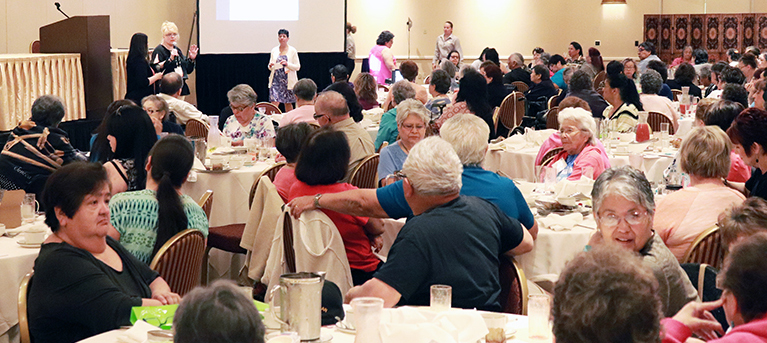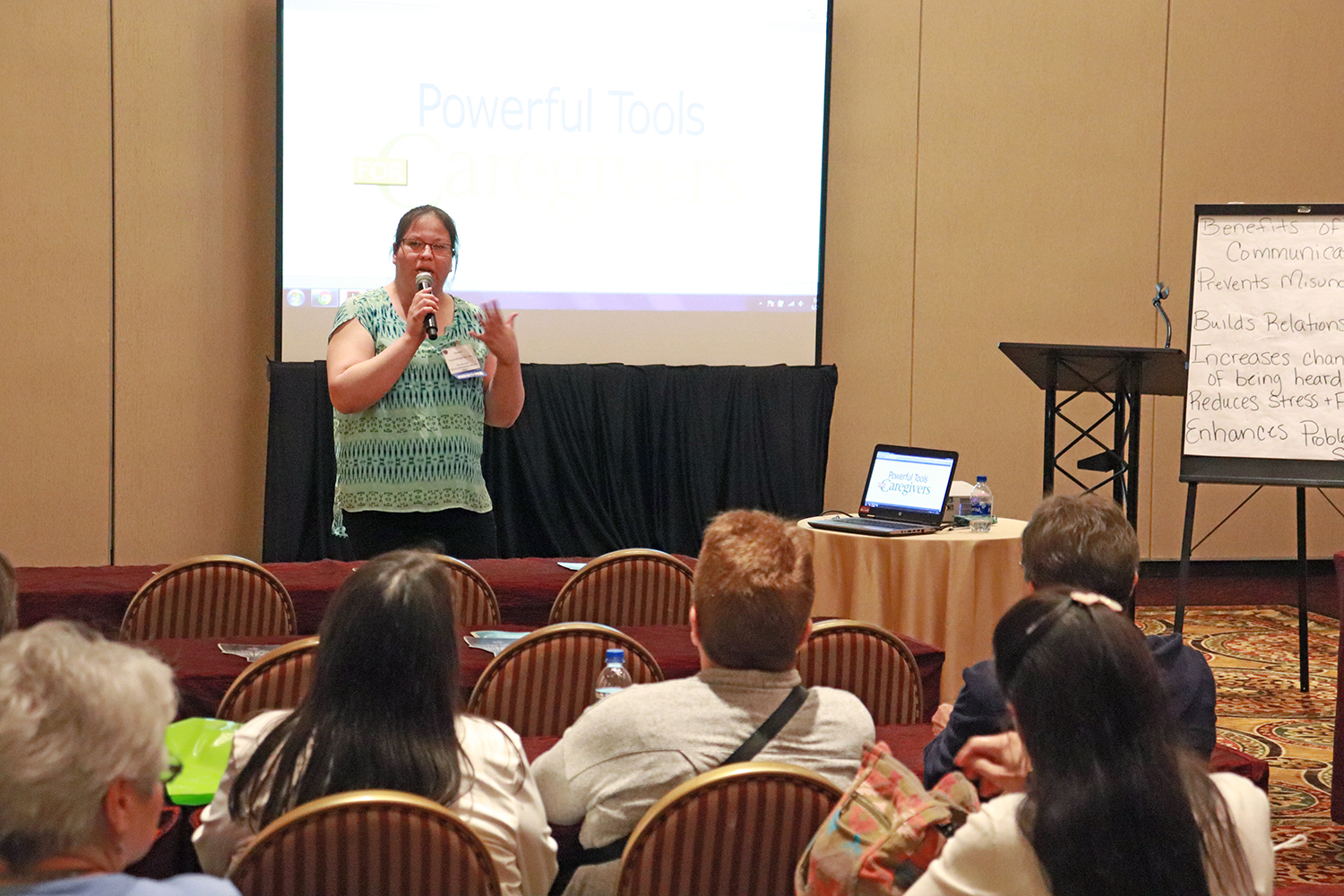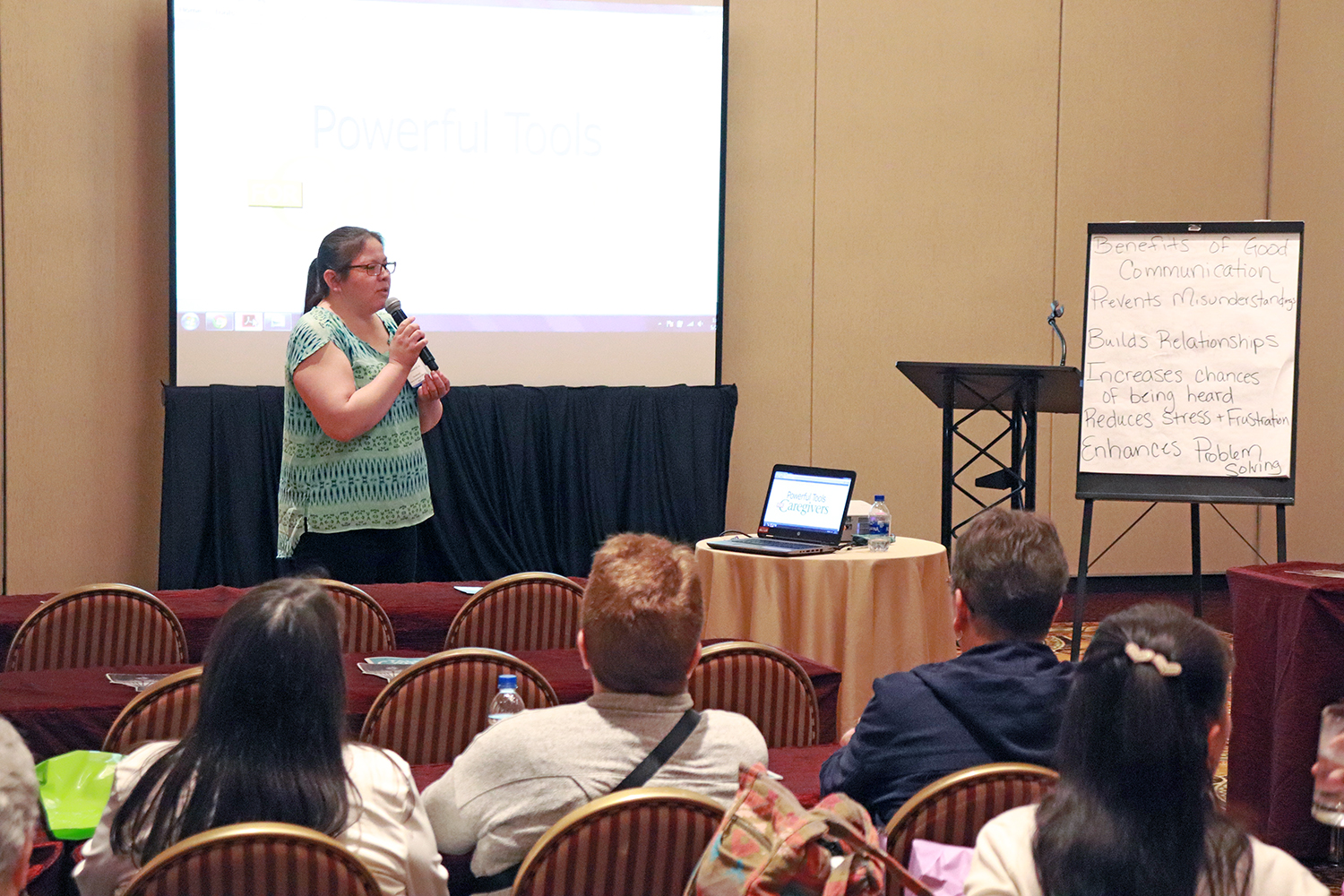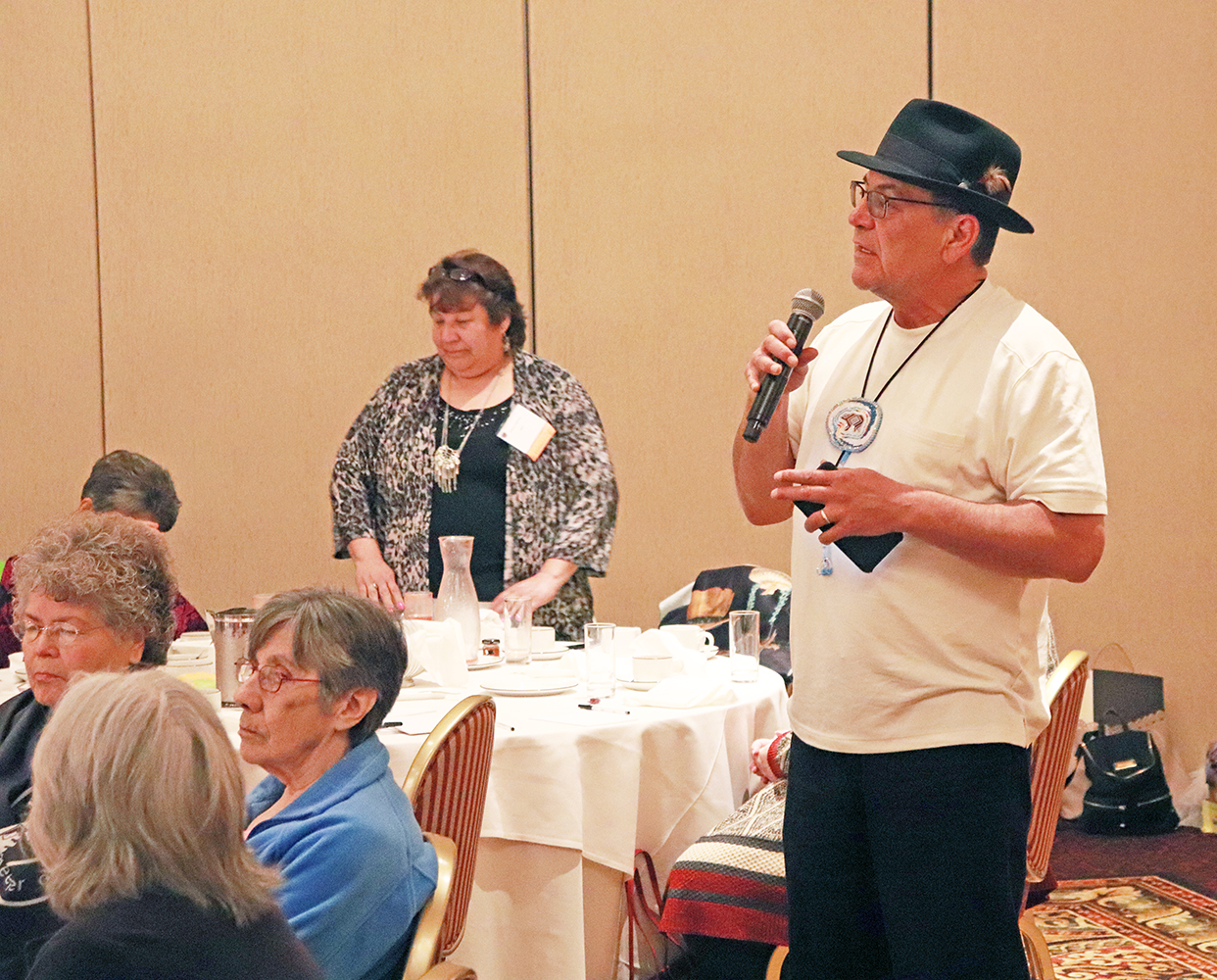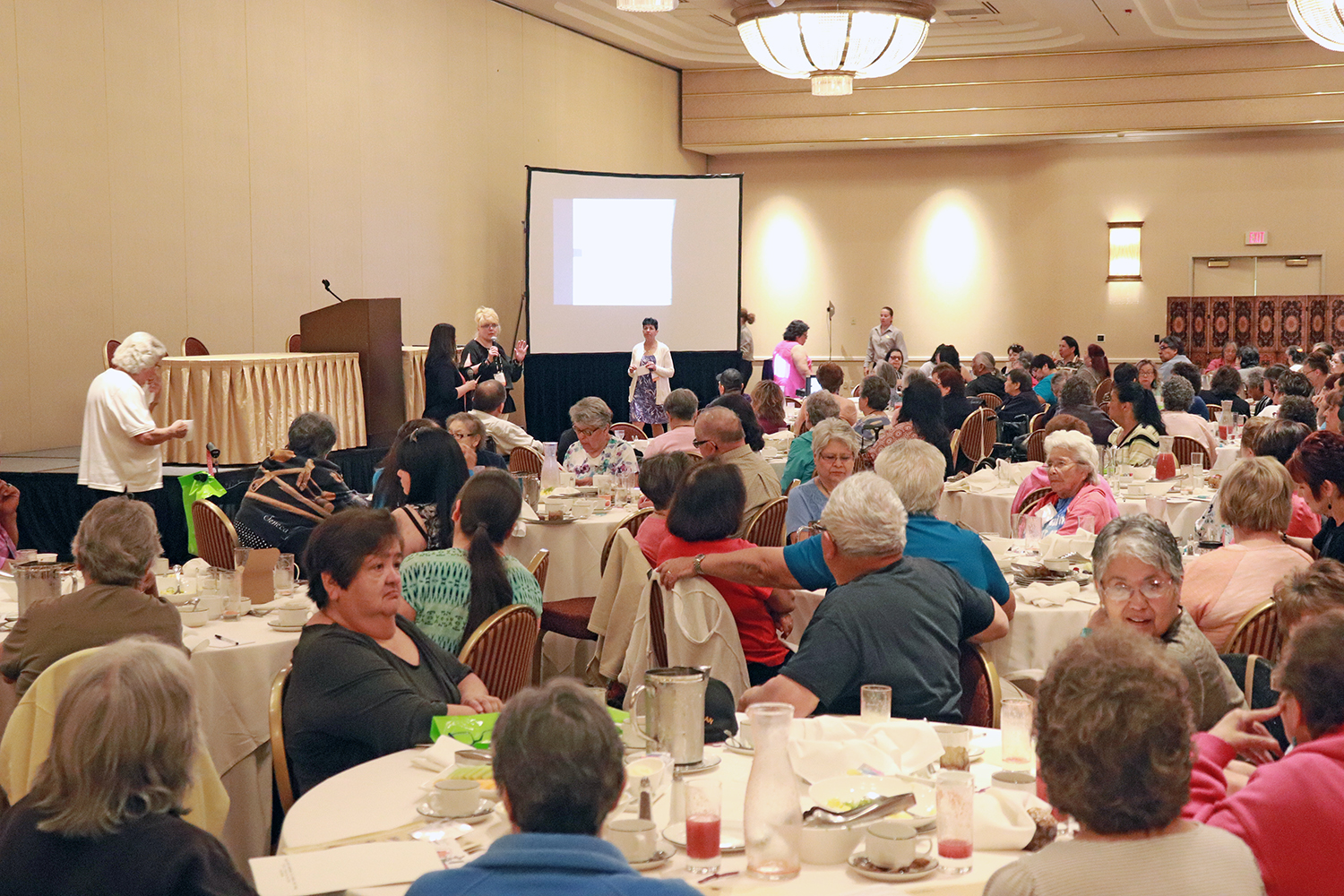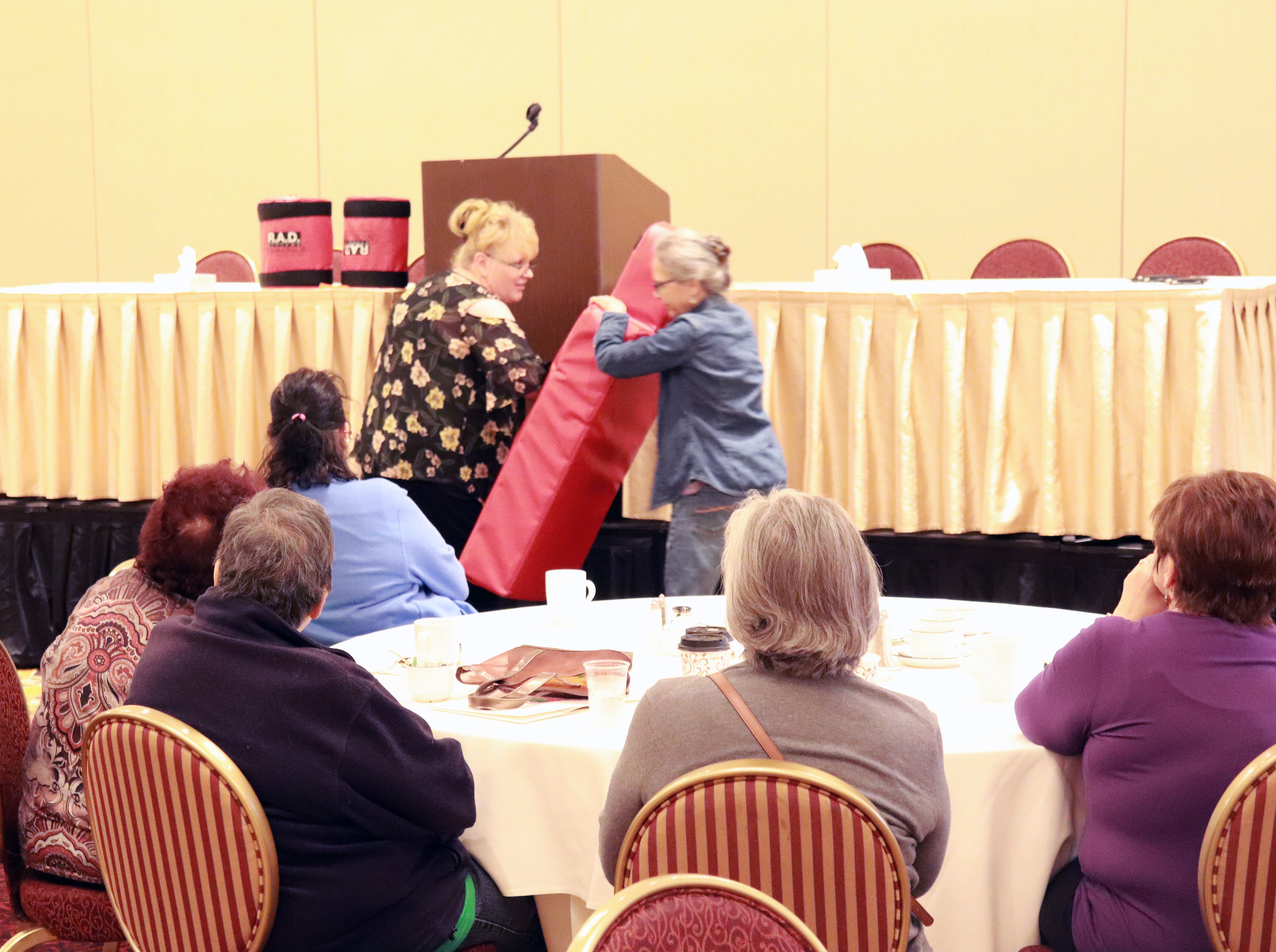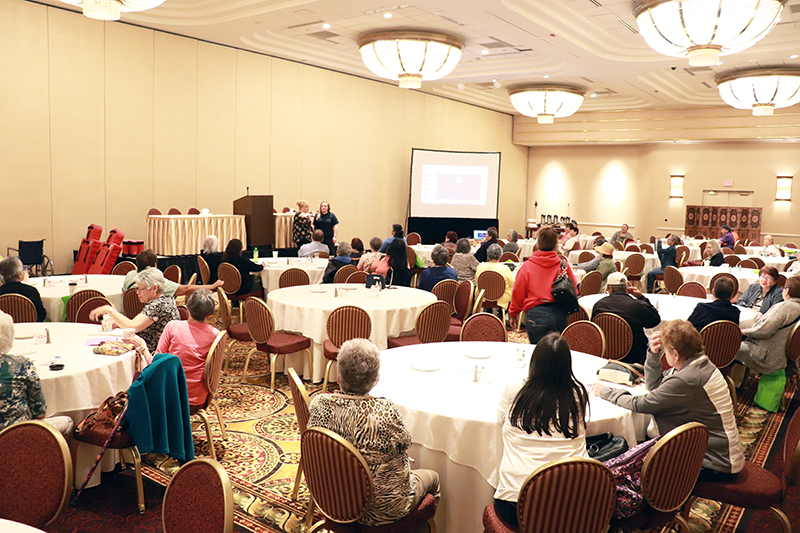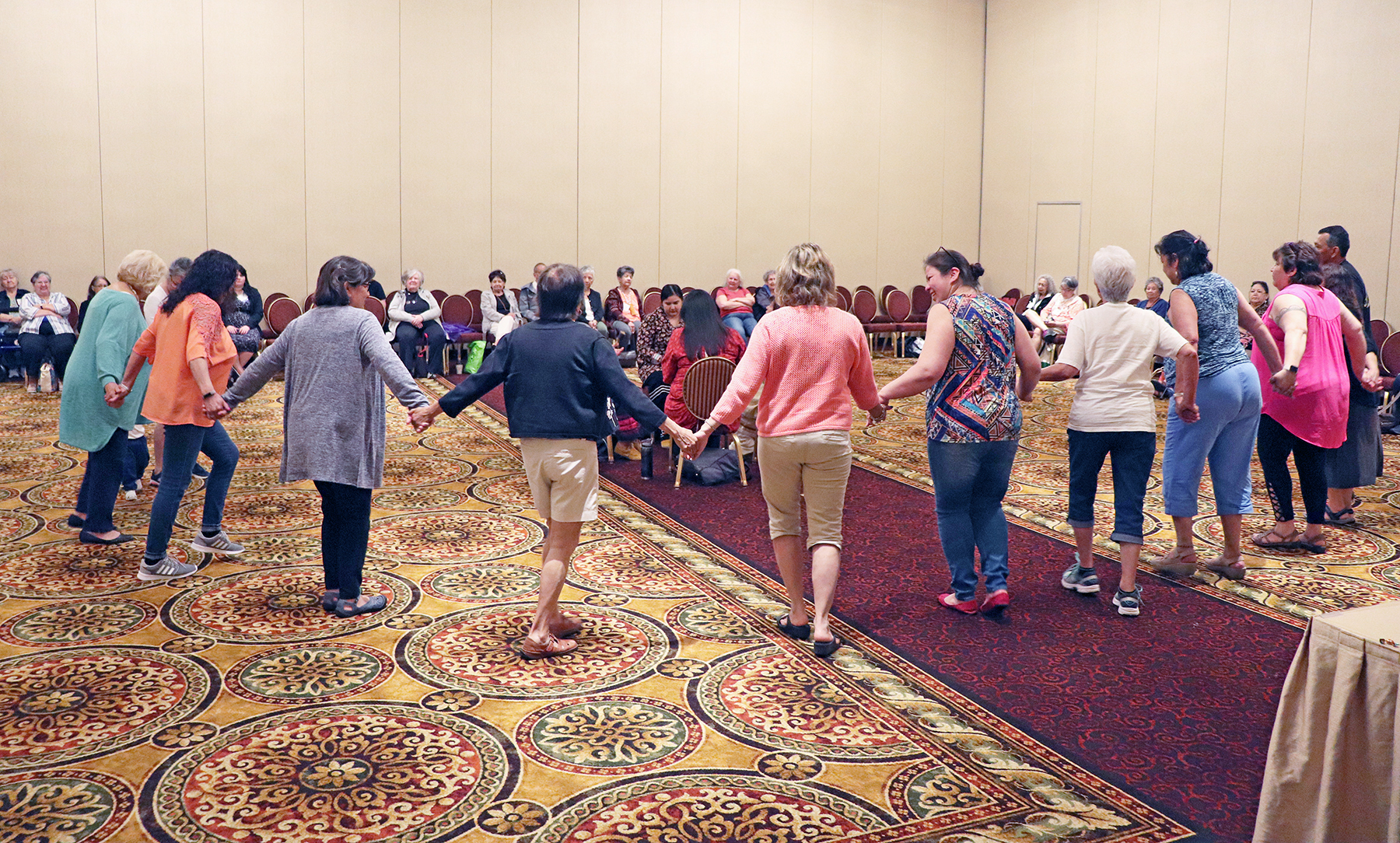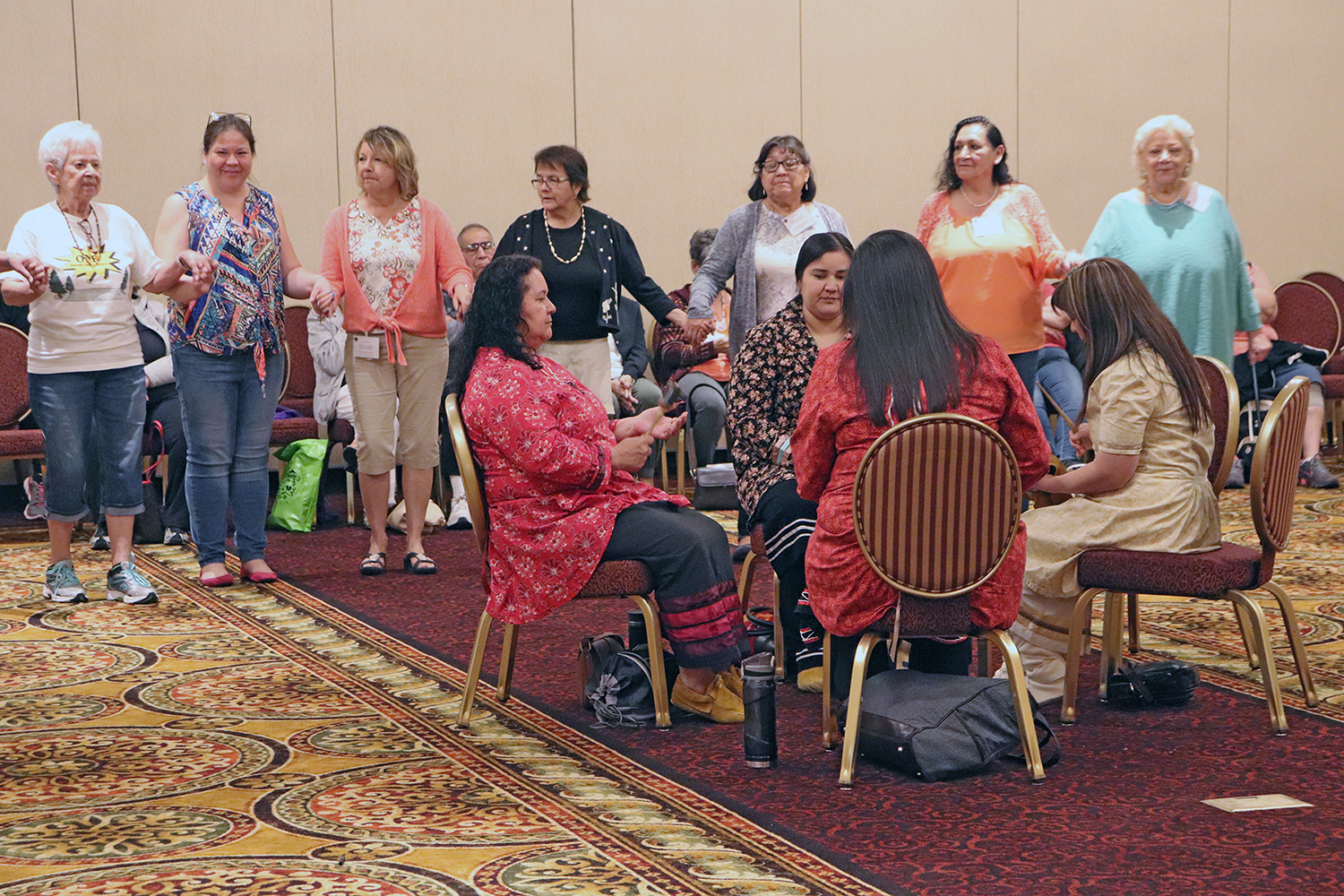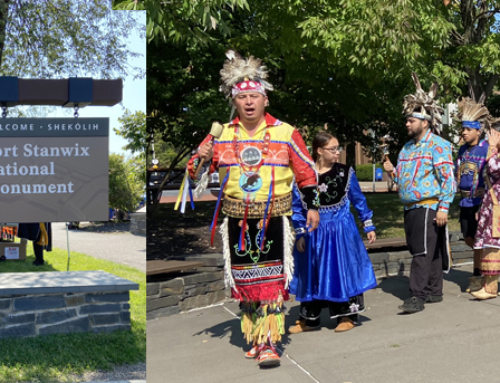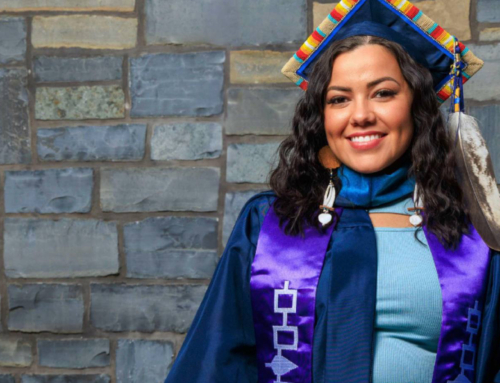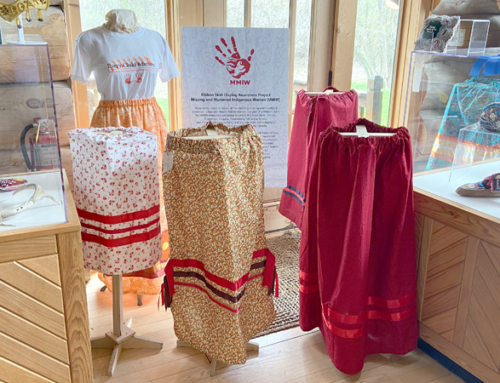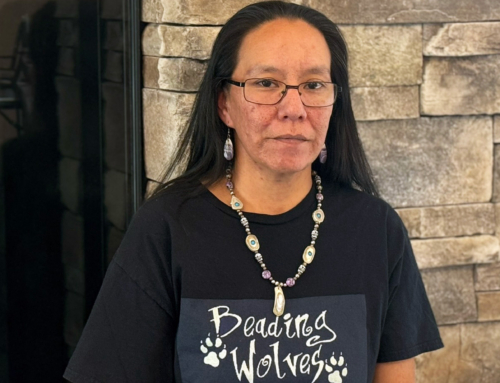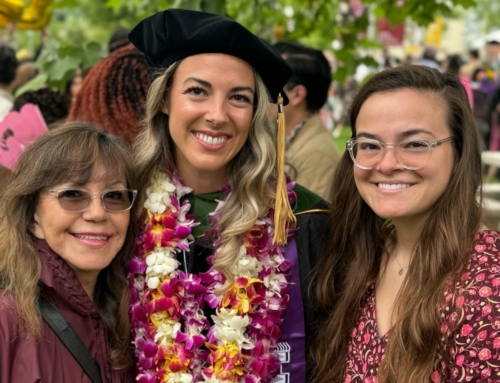The Oneida Indian Nation hosted the 18th annual Aging Well Elders Conference at the Turning Stone Resort Casino Conference Center earlier this May. The two-day conference welcomes guest speakers from across Indian Country to provide elder American Indians and their caregivers with vital resources for healthy living.
Nation Elders program coordinator, Kathy Willard, and activities leader, Tammy Patterson (Wolf Clan), welcomed more than 150 guests to the conference Thursday morning.
This year’s conference presentations focused primarily on healing and hope, with open discussions about substance abuse and newer drug trends that disproportionately affect Native communities. Following the Acknowledgement of Nations and a few icebreakers, Oneida Indian Nation Manager of Behavioral Health Services, Kara Kaplan, was introduced as the first keynote speaker.
Kara discussed how the current drug epidemic affects American Indians. The historical trauma that occurred over generations left the children of those generations without positive coping skills. Many American Indians, even a few generations ago, had to endure horrific experiences, which led to a cycle of increased depression and anxiety. Positive coping skills are proven to be more effective than addicting controlled substances that are often prescribed to maintain those conditions.
Family history continues to be a major symptom for the higher predisposition of addiction among American Indians. Kara followed up by mentioning how the Oneida Indian Nation is helping to combat addiction and drug control problems in the area with its expansive health resources. The new Health Services location in Oneida has a behavioral health department with trained mental health counselors and an on-call psychiatrist that can provide counseling and refer to in-patient facilities if necessary.
A guest from Akwesasne also said Ohero:kon – “under the husk” – is a great way for their community’s youth to stay engaged with the culture. The four-year coming of age ritual invites the community’s nieces and nephews to gather in the longhouse every Sunday for 20 weeks to prepare themselves for adulthood with guidance from their Elders.
Kara closed her presentation with a question and answer forum to ensure everyone in attendance could get a chance to ask more personal questions if they chose to do so. Guests could also write questions anonymously on index cards if they didn’t want to speak in front of the group.
“Realize that you control your own behaviors,” she said in closing. “Talk to your doctors and counselors. We can stop this, we can help it, and we can heal it.”
Oneida Indian Nation Bear Clan Council Member Brian Patterson attended the event and volunteered to share how he stays engaged with the Nation’s youth through social dancing and gatherings at backyard fires to prevent drug abuse early on. He said it’s critical to break the silence on addiction and that we all must wrap our minds around the issue together.
“We are all affected by this,” he said. “We must strengthen our young people and say this is not acceptable on our homelands.”
From Addiction to Healing
The first morning breakout sessions featured several guest speakers in smaller settings. Guests could choose from a fun workout session for exercise, a seminar on elder abuse, or a conversation with Oneida Elder Nonie Waterman (Turtle Clan) who discussed her life story and challenge with addiction.
Nonie battled substance abuse for nearly her entire life and wants to share her story with younger people to encourage them to make better and smarter decisions. She mentioned she had little confidence, which played a big role in her decision-making at a young age.
“Nobody knew I was taking drugs,” Nonie said. “But once I hit rock bottom, I knew I needed to help myself. Now I want to help children.”
With all of the obstacles Nonie faced, she found a way to get the help she needed. She offered advice to others that may be struggling with addiction: find a sponsor. She said that she still goes to meetings with her sponsor of 25 years. Nonie is now CASAC certified and a graduate of Onondaga Community College.
The afternoon breakout sessions featured a healthy cooking demonstration, a seminar on medicine, and a seminar in Elder communication strategies. The latter seminar offered tips for caregivers to communicate effectively with their loved ones. Good communication prevents misunderstandings, builds healthy relationships and reduces stress.
Tewentahawih’tha’ Cole (Mohawk) led the presentation with several interactive examples.
“It’s important to take care of yourself as a caregiver,” she said. “Using ‘I’ messages respect the feelings of others and is much clearer and specific.”
These messages engage the person and forces them to listen, which can be a difficult problem for some caregivers. She closed her presentation by asking caregivers to find common ground when communicating. Aligning, agreeing or redirecting your communication when necessary leads to greater harmony and peace.
The first day was capped off with a bus trip to a local mall that was available for conference attendees.
Elders Conference Day Two
Day two of the Elders Conference was set to feature keynote speaker Dr. Darryl Tonemah, a popular presenter who addresses topics such as education, societal trends and health care issues in Native communities. Unfortunately, travel issues kept Dr. Tonemah from making it to the east coast, so Kathy Willard, who is also well-trained in self-defense and martial arts, pinched-hit to provide a lively presentation of her own.
Kathy’s presentation on personal safety included risk reduction strategies for safe-guarding your home, your personal information and your body. She engaged the attendees in conversations about safety issues and many shared their own tips; some based on personal experiences such as with the seemingly never-ending phone and email scams. The best advice – hang up and delete!
With the onset of summer-like temperatures throughout the region, Kathy explained how window unit air conditioners may provide an opportunity for thieves to gain easy access to your home. Colleen Jones (Turtle Clan) suggested using pieces of wood to secure windows from being opened from the outside. Other pointers included keeping your blinds, shade or curtains closed at night and utilizing outdoor lighting to make your home less of a target.
She also shared tips for the Elders on how to remain safe during every day activities such as exercising, going for walks or grocery shopping. When going to a park for a walk or a trip to the mall, it is a good idea to let someone know where you are going and when you expect to return home.
Tip – Oneida Indian Nation Elders who live locally can ask the Oneida Indian Nation Police Department to keep an eye on their home and property while they are away on trips. Call (315) 829-8100.
Kathy explained that while grocery shopping, keeping your backside to the vehicle so you have to turn while unloading groceries helps you keep an eye on your surroundings, as well as provides exercise for the hips. Linda Williams (Turtle Clan) recommended Elders should take advantage of certain services offered, such as having a grocery store employee walk you to your vehicle and load your groceries for you.
Linda visits the Nation’s Elders Center regularly and was really impressed with Kathy’s impromptu keynote presentation.
“I thought it was great,” she said. “I loved that it was interactive and that I could raise my hand to ask questions or participate. She was really good and I had a lot of fun.”
Self Defense a Personal Choice
Kathy, who was the New York State Taekwondo sparring champion in 2012 and started her own self-defense training company in the same year, also kept Elders entertained during a presentation on personal safety. With the help of her daughter Rachel and a few Elder volunteers, Kathy demonstrated simple self-defense moves that could help any Elder in a situation of need.
Kathy explained how good self defense is 98 percent mental confidence. Being aware of your surroundings and trusting your first instincts are key – don’t second-guess yourself in any situation. She also explained that when faced with an attack, how much a person resists is their own personal choice. Getting loud, and physical if necessary, are the best ways to ward off potential attacks and ensure that you get home safe to family and friends.
The Elders that filled the Mohawk Room who had planned on a discussion on substance abuse with Dr. Tonemah were treated to an important, informative presentation just the same.
Earlier in day two, attendees had several workshop options including a cooking demonstration led by chefs from Turning Stone Resort Casino, a presentation on the ins and outs of insurance, and a popular Medicine Wheel presentation led by Joey David.
Joey is an addictions case manager at the Wholistic Health and Wellness Program at Akwesasne. He utilizes the Onkwehonwehnéha Ohkakowenta, or “original person wheel” to help clients and community members connect with their hearts and develop spiritually, mentally, emotionally and physically.
Margaret Splain (Turtle Clan) attended the conference for the first time in a few years. “I really like the different presentations and speakers that are here,” she said. “The Elders staff always does such a wonderful job putting this event together.”


